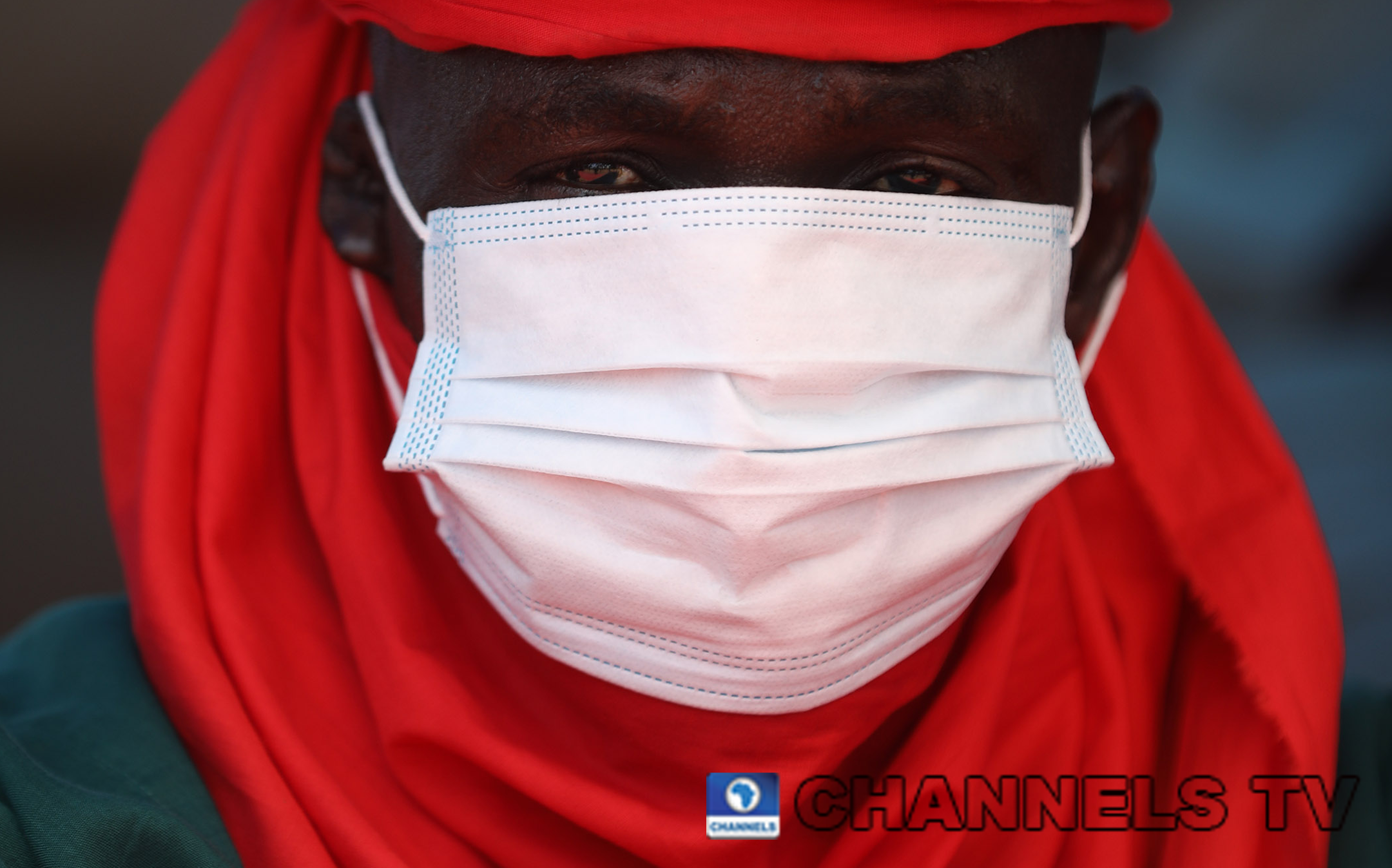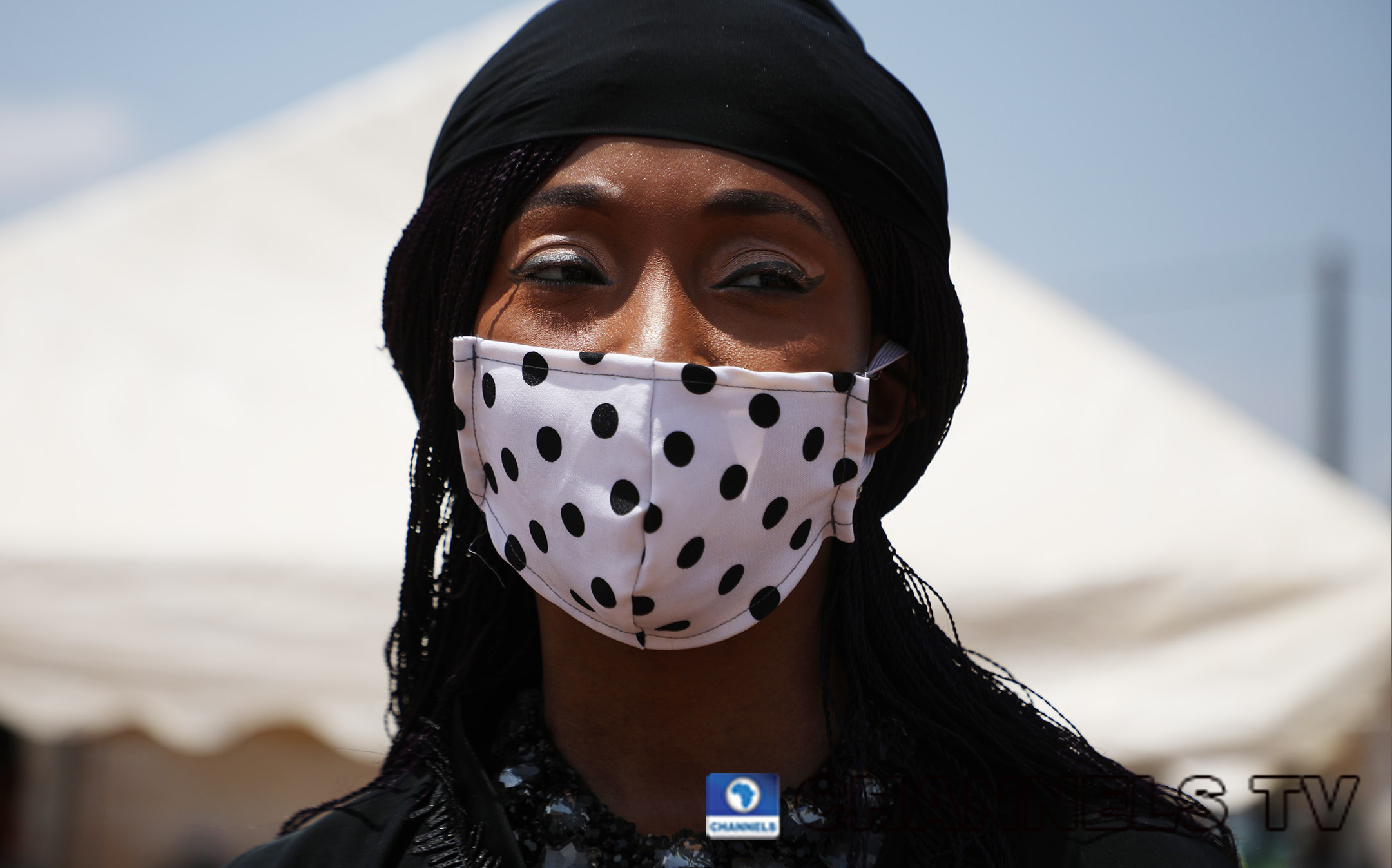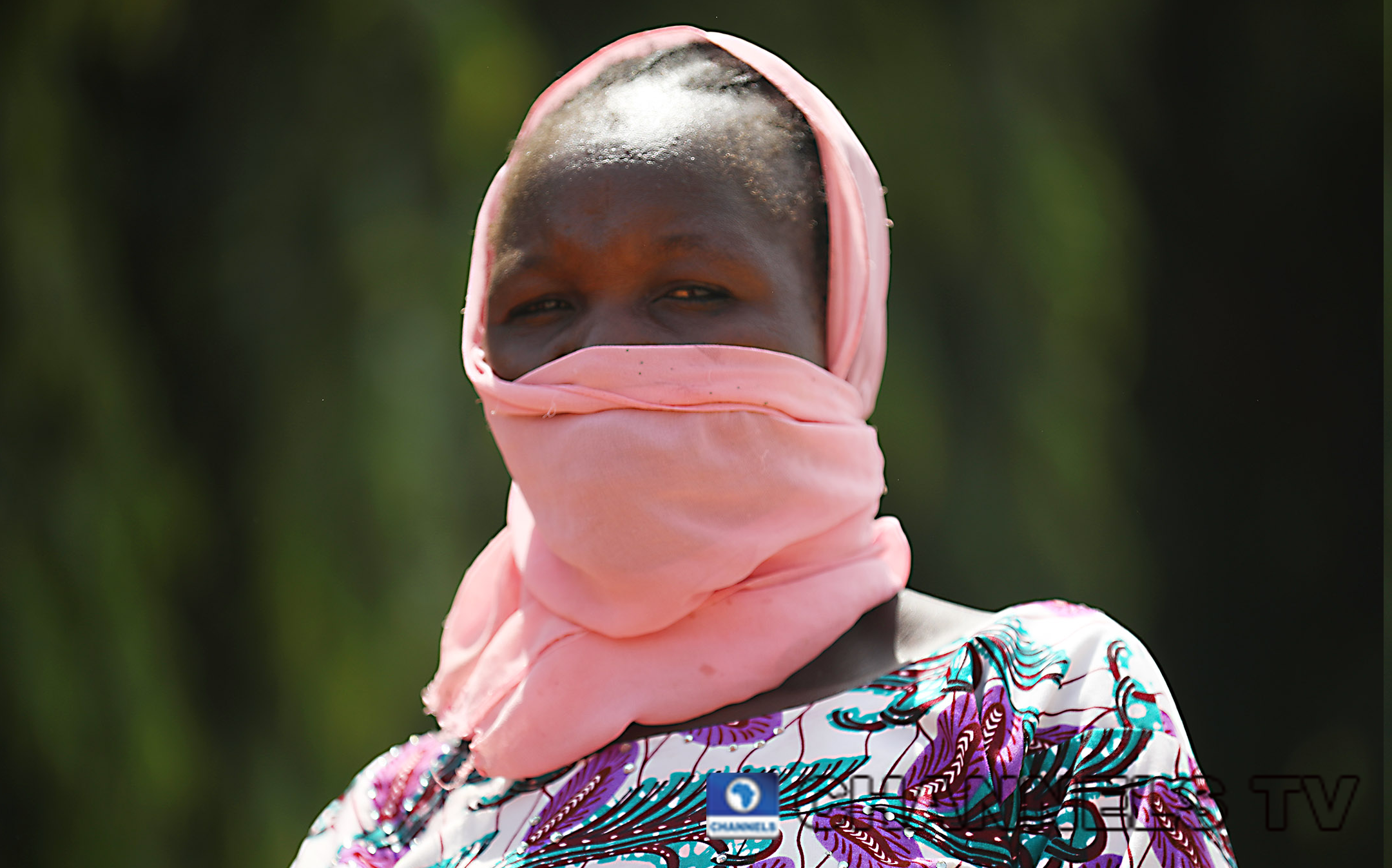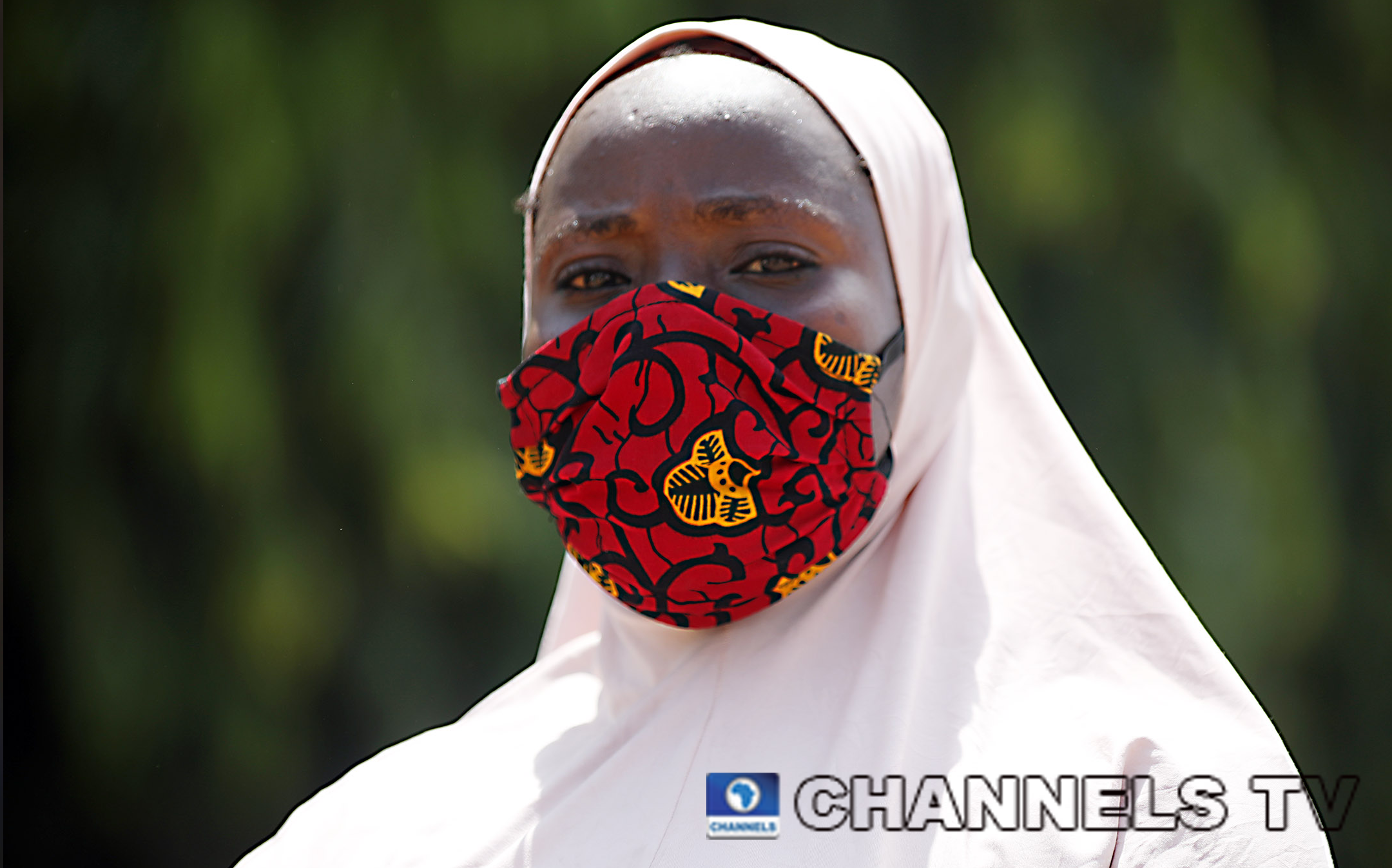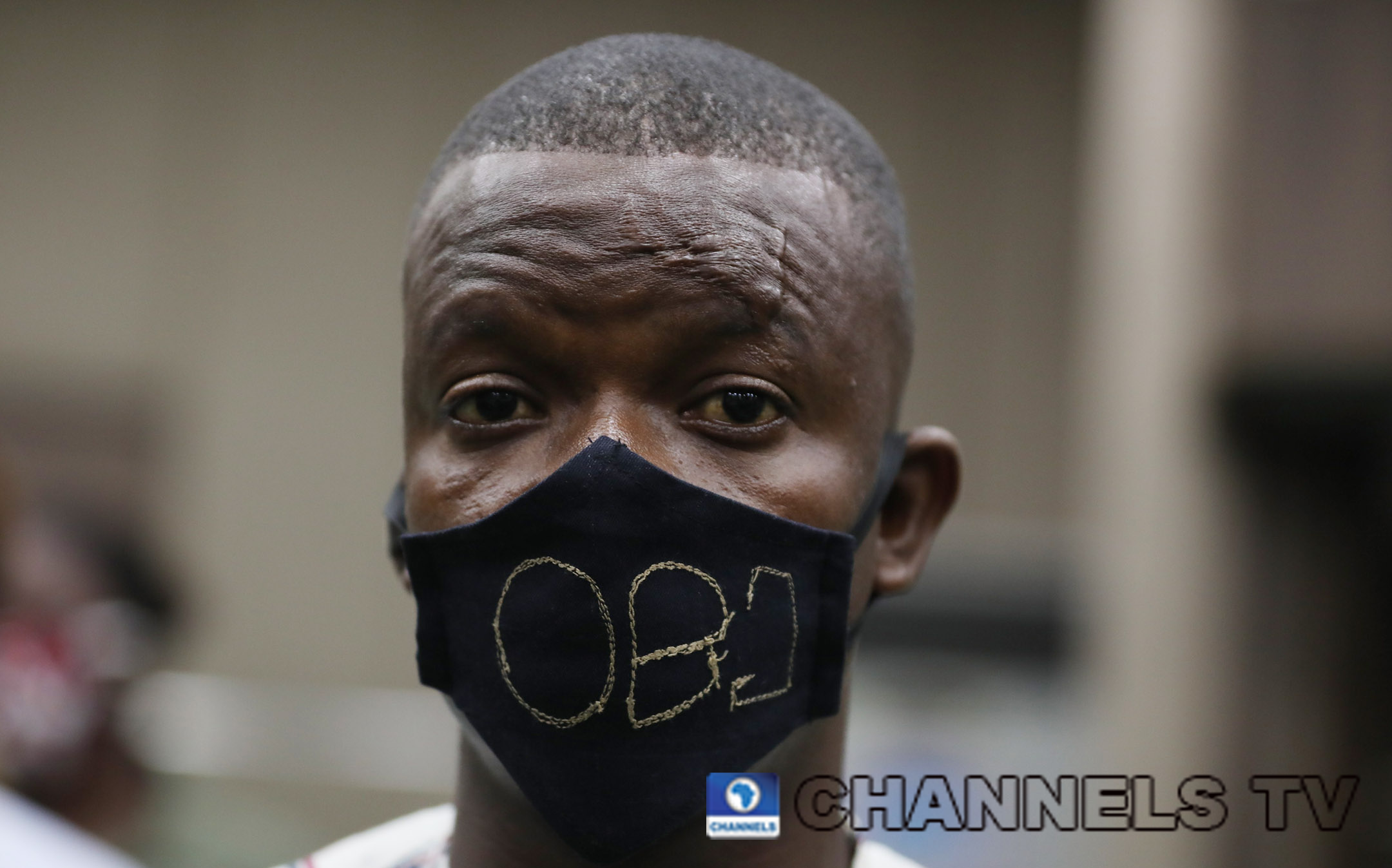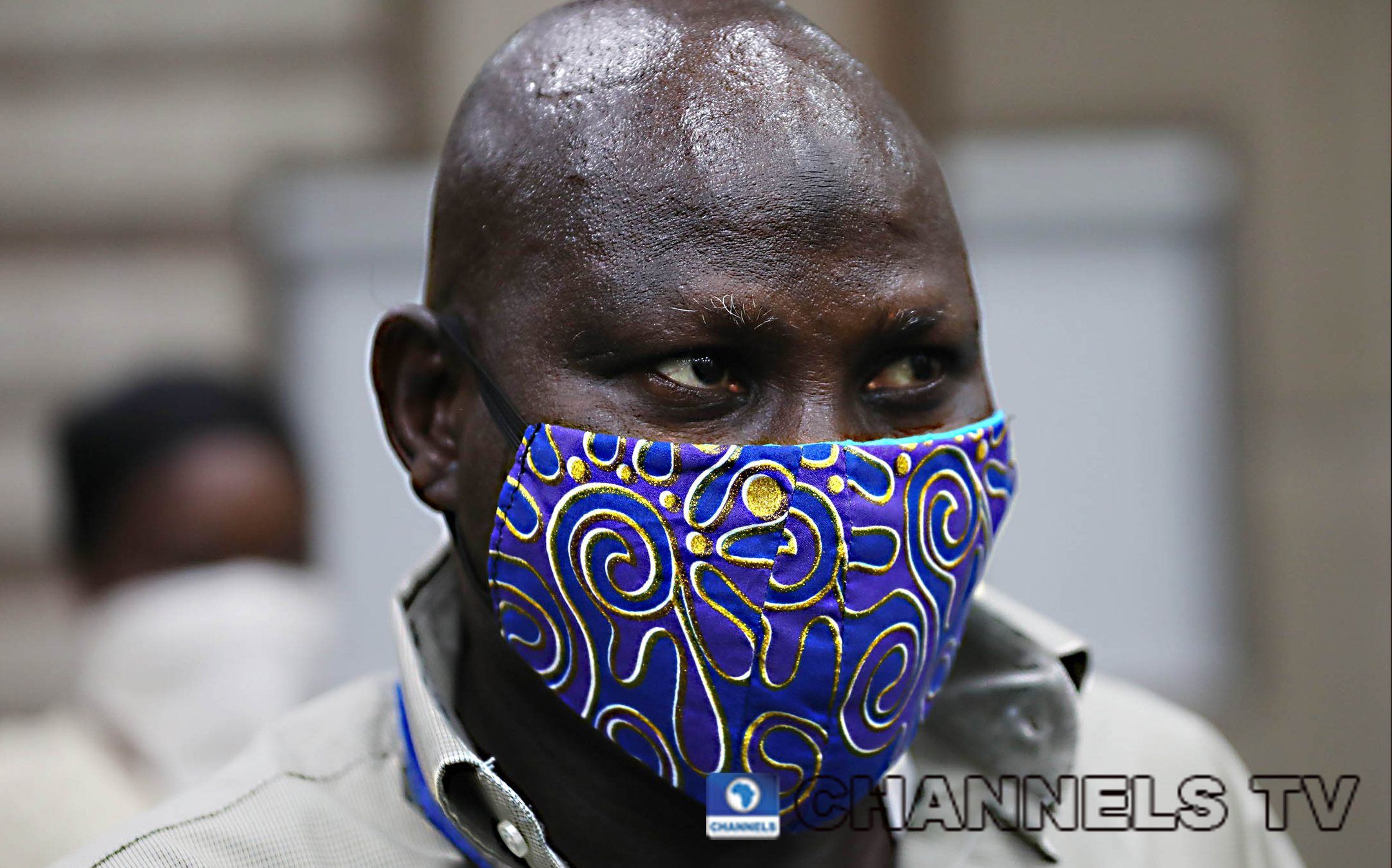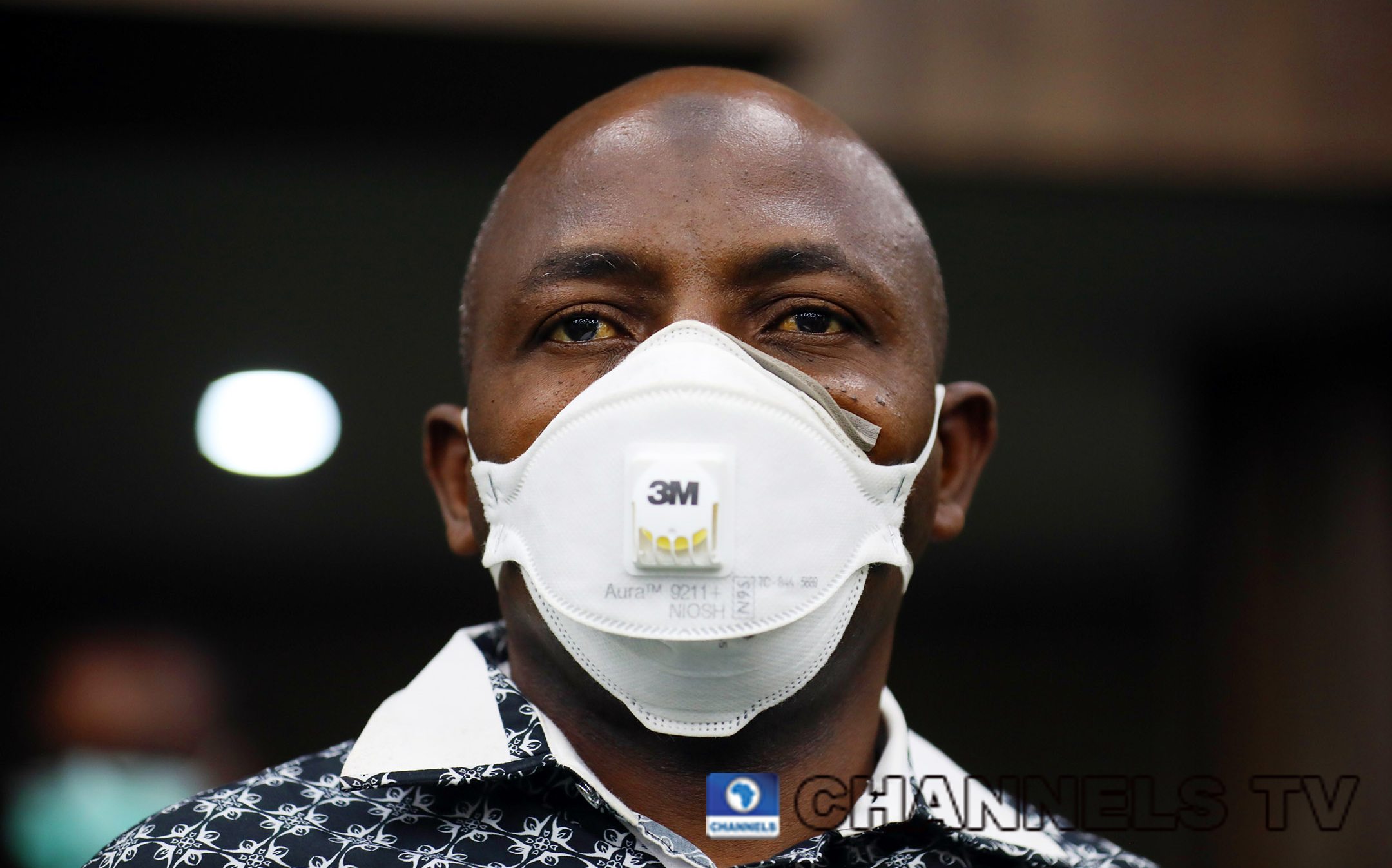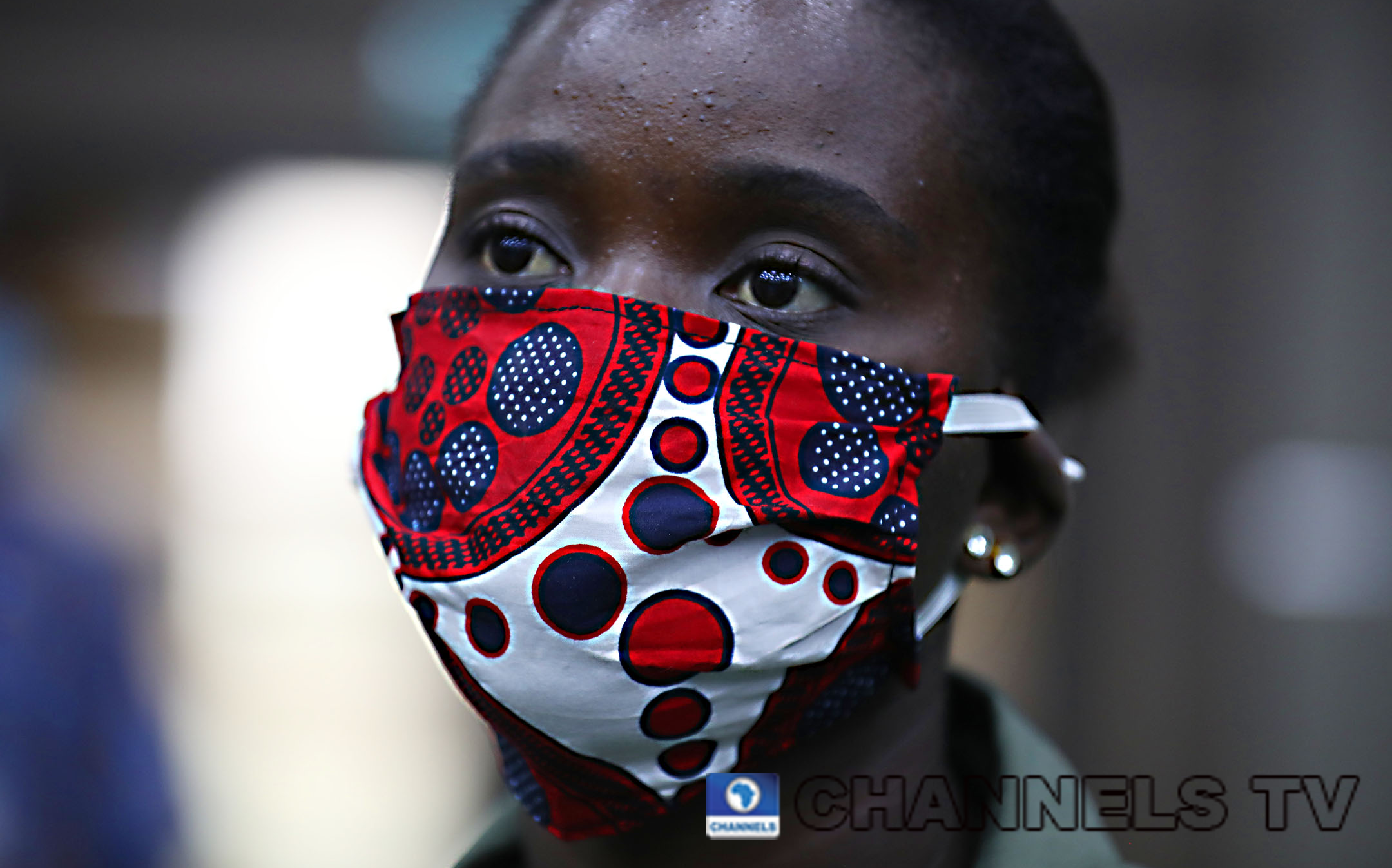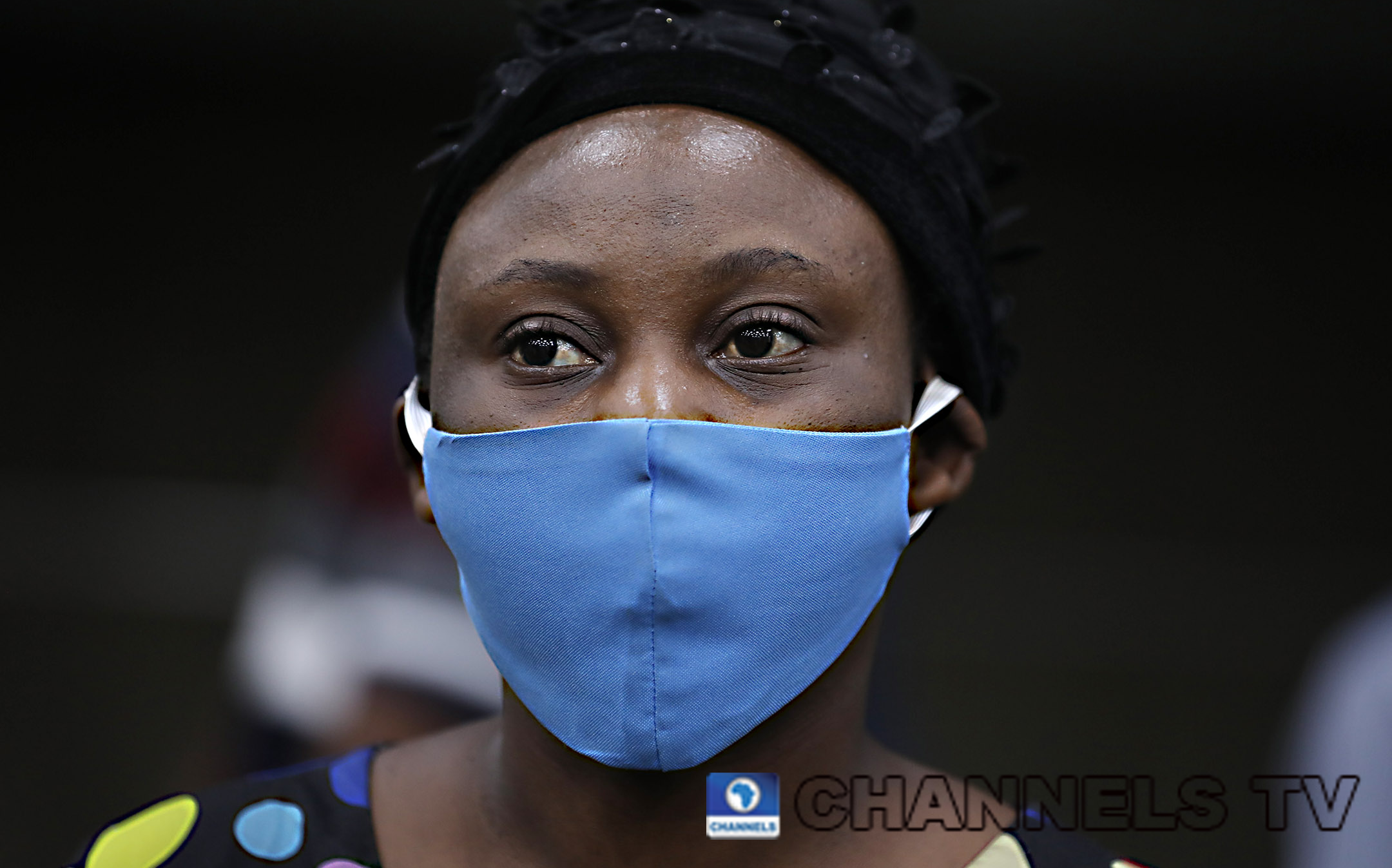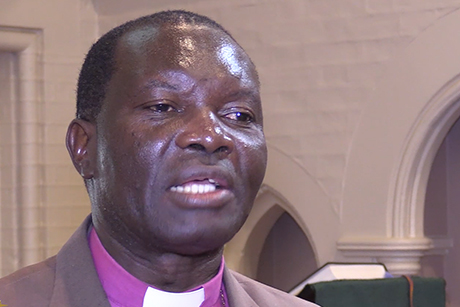In a series of images taken by Sodiq Adelakun, we see Nigerians donning face-masks in an array of colours. But one thing is constant: pensiveness. The eyes, the most prominent part of the face visible, is clouded with anxiety, perhaps about the future; the eyes brood, not mournfully, but as if in contemplation. “The masks make people uncomfortable,” Adelakun, who is a Staff Photographer at Channels Television, says. “But they are also afraid of what will happen if they don’t wear it.”
Since the novel coronavirus was first recorded in China last December, it has infected millions across the world and killed scores, while upstaging humankind’s social dynamics, how we live, travel, party and breathe. In Nigeria, the virus has been trailed by a plethora of controversies. The Nigeria Centre for Disease Control has reported thousands of cases across all but two regions, but some insist it’s a hoax designed to siphon public funds. Amid the sometimes feisty debates, regional governments have moved to implement varying levels of lockdowns, closing schools, worship centres; the federal government has shut down the nation’s airspace and restricted inter-state travel to essential services. But lockdowns are not sustainable. As the government gradually seeks to reopen the economy, it is only inevitable that the collective memory of the virus’ severity will dwindle and face masks, too, will disappear from public squares. Or maybe not.
Face masks have a long history. In 17th century Europe, plague doctors wore “a leather headdress with a long, pointed beak filled with perfumes and aromatics that masked bad odours and were believed to combat contagion carried by bad air,” Virginia Postrel writes for Bloomberg. In medicine, the use of face masks correlates with germ theory, the idea that microorganisms can cause disease. But masks are also popular in the fashion world. At the 2020 AMVCA, former Big Brother housemate, Omashola Kola Oburoh, turned up on the red carpet in a mask. “Fashion can also be a protest/educative not just a Statement . . . let’s join hands to fight Covid19,” he wrote in an Instagram post. At the time, Nigeria had only recorded two cases of COVID-19 with no deaths.
No doubt it is disingenuous to suggest that if more Nigerians wear masks, the virus will dissolve. Like the NCDC has said, masks are just one piece of the puzzle, but perhaps a very crucial one. The novel coronavirus spreads through the transmission of droplets, and the mouth and nose are some of the main arteries through which our bodies take in and push out. So it’s reasonable to wear face masks, medically. But the case for masks goes beyond the probability of transmission and into the realm of solidarity. “I do think there is something that is powerful about the universal signalling if everyone wears a mask,” Siddhartha Mukherjee, a stem-cell biologist, says. And this, solidarity, is clearly represented in Adelakun’s images which capture people from different backgrounds trying to cover up in, of course, divergent fashion. One-for-all-and-all-for-one is a good way to think about besting recalcitrant viruses.
See some the pictures below:

